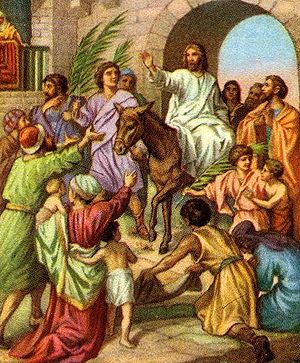 Advent brings hope, justice, and righteousness
Advent brings hope, justice, and righteousness
Please read Isaiah 61.
In the above passage, the one whom God has anointed and sent is not identified. Yes, it’s primarily the prophet’s voice and it is Prophet Isiah’s mission that is described in these verses; however, since these are prophetic words, they have more than one fulfillment. Jesus Christ applied them to himself in his Nazareth Manifesto at the inauguration of his earthly ministry (Luke 4: 14-21). In this powerful manifesto Jesus outlines his mission as the long expected Messiah.
Jesus Christ has the required anointing of the Holy Spirit, power, and authority of God to accomplish this mission on which he has been sent to this earth. As a matter of fact, there has been no one else in the history who has either claimed this manifesto to be his/her mission or who had what it takes to accomplish this divine task. Only God’s appointed and God’s anointed can complete it.
Next, we notice that that the Anointed One is sent to bring hope. To a people in Israel who lived in hopelessness and in ruins both physical and spiritual, Jesus Christ brings the good news instead of condemnation. Noteworthy is the fact that this good news of hope is for the oppressed, to the ones whose hearts are crushed, to the captives, the imprisoned and to all who mourn. Contrary to the common belief, these people were in this state not because of their own fault. Rather, they were made to live in this situation because of historic and systematic exploitation and oppression. It’s not stated in the above verses, however, in order to reach those persons and deliver them, the Messiah must, of necessity, confront the perpetrators and sources of repression, marginalization, hopelessness and despair. In fact, the message of good news is actually bad news for the oppressors. The mission of the Messiah is to actually reverse the circumstances and effect a transformation in the identity and activity of the oppressed. In bringing the good news to the oppressed, the Anointed One also brings healing to the broken hearts, liberty for the captives, or release to those who are imprisoned by the system. If you observe closely, Jesus Christ was using the terminology of the Jubilee Year (see Leviticus 25). In doing so, the Messiah makes it clear that the liberty proclaimed is intended to be made permanent in new social and economic order and relationships that he has come to establish in and through the Kingdom of God. God’s anointed is also “to proclaim the year of the LORD’s favor, and the day of vengeance of our God.” This is assurance that God has chosen to act with abundant “favor” and mercy towards those who are oppressed and marginalized and to judge and defeat those who would harm them. So, this Advent, we’re reminded that the coming of the Messiah will replace the dull spirits with mantles of praise. We’re reminded that the Messiah is for the humiliated, fragmented, dispirited and exploited people and he’s working to rebuild the world as a city where righteousness and justice flourish. We’re reminded that a new future is possible because God promises to be in “everlasting covenant with them” (Isaiah 61: 8). He’ll cloth us with the robes of righteousness (Isaiah 61: 9-10) and the city where hopelessness had taken root will, by God’s spirit and by God’s blessing, sprout righteousness and praise!
Amen. Come Lord Jesus!









